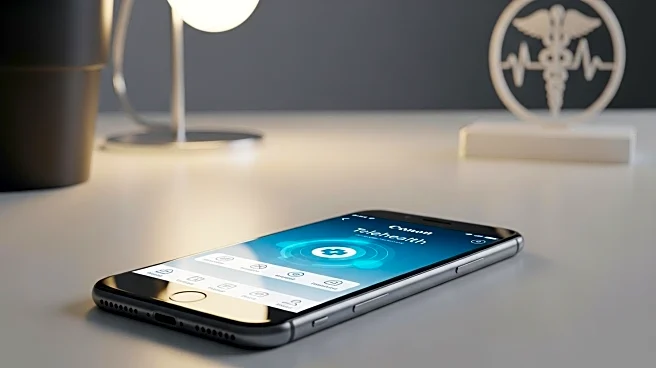What is the story about?
What's Happening?
The telehealth industry in the U.S. is evolving, with companies now offering a wide range of medications, from birth control to weight loss and erectile dysfunction treatments, delivered directly to consumers. This shift is transforming healthcare into a more consumer-driven model, where convenience and accessibility are prioritized. The discussion, led by Katie Palmer, a health tech correspondent, highlights how telehealth has expanded beyond its initial purpose of increasing healthcare access, now influencing the broader healthcare landscape by making medical services more consumer-friendly.
Why It's Important?
The consumerization of medicine through telehealth represents a significant shift in the healthcare industry, potentially increasing access to medical services and reducing costs for patients. This trend could lead to greater patient empowerment, as individuals have more control over their healthcare choices. However, it also raises questions about the quality of care and the potential for over-reliance on digital platforms. The expansion of telehealth services could challenge traditional healthcare providers to adapt to new consumer expectations and integrate digital solutions into their practices.
Beyond the Headlines
The rise of telehealth may have ethical and regulatory implications, as the industry navigates issues related to patient privacy, data security, and the quality of remote care. The shift towards consumer-driven healthcare could also impact the doctor-patient relationship, as patients increasingly seek convenience over traditional in-person consultations. Long-term, this evolution may lead to changes in healthcare policy and regulation, as stakeholders work to balance innovation with patient safety and care standards.















